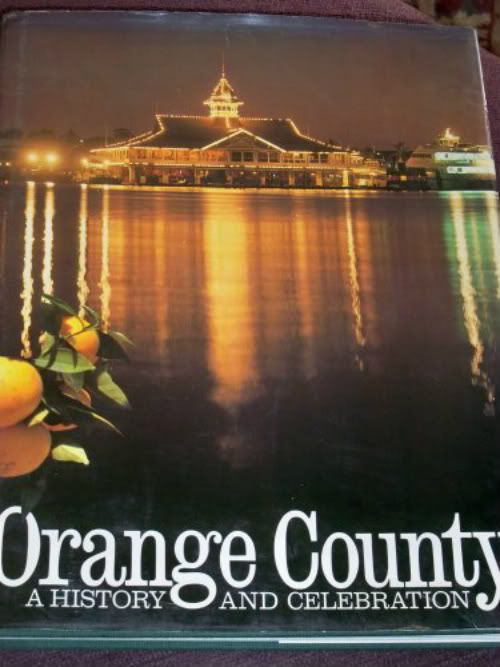In researching the history of my hometown (Fullerton, California), I have encountered two basic types of history books.
The first is what I would call "nostalgic" books. These books treat the past in a rather idealized way. A good example of this is Ostrich Eggs for Breakfast, which is the history of Fullerton I had to read in third grade. An adult example is Fullerton: A Pictorial History by Bob Ziebell. Books like this, usually written by amateur historians, tend to gloss over or ignore completely the more unpleasant aspects of history, like racism and discrimination. These books tend to avoid critical thinking, preferring to celebrate local politicians, businesses, and cultural traditions. This is their main flaw, in my opinion.
The second type of history book I've found are "academic" ones. While there are no academic books I've found that focus exclusively on Fullerton, there are a handful of academic books and articles on Orange County, and they sometimes discuss Fullerton. These books usually do not ignore the unpleasant aspects of history, but dive deeply into them. A good example of a book like this is Postsuburban California: The Transformation of Orange County Since WWII. This book is a collection of articles by university professors on a wide range of social, economic, political, and cultural issues in Orange County over the past 50 years. The problem with books like this, however, is that they are written for a very small (i.e. academic) audience and are quite inaccessible to the average reader. Writers will use terms like "decentralized multinucleated metropolitan region" and expect their readers will know what they're talking about. These books and articles may offer fantastic insights into history, but if only a handful of highly educated readers can understand them, what's the point?
In writing my local history, I have sought a third path. I want to write about the past with honesty and critical thinking, AND I want the average reader to be able to read, understand, and enjoy my book. I take as my inspiration historians like Howard Zinn who, in his People's History of the United States, writes about the past in a way that promotes serious reflection AND is quite accessible to a wide audience. That is my goal.

More history, less celebration.
